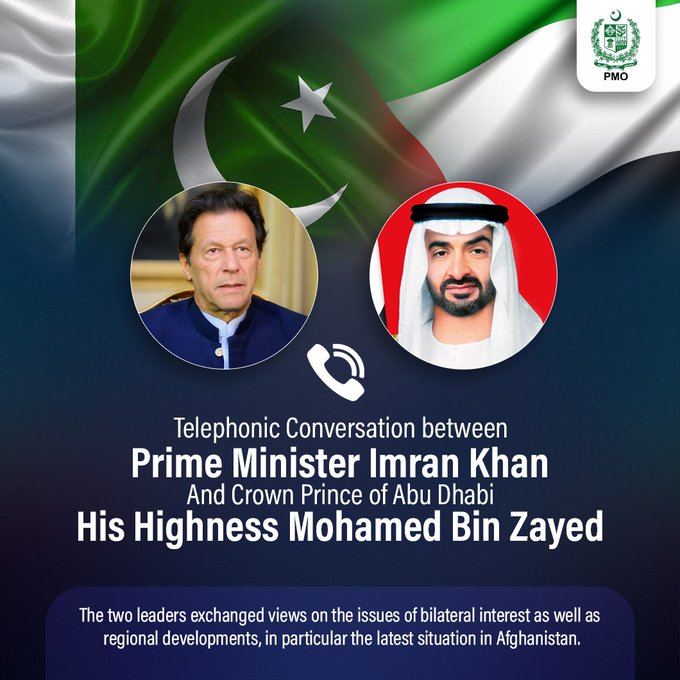
Pakistan’s Inter-Services Intelligence chief visiting Kabul at a time when intra-Taliban disagreements have delayed the formation of a gov reminds me of the countless visits by IRGC officials to Iraq in years past to mediate differences among Iran’s various Shia proxy factions.
https://twitter.com/lindseyhilsum/status/1434054625896902658
For several reasons, Iran was able to make use of the US intervention in Iraq to flip the country from an enemy to a client state.
In sharp contrast, and due to a different set of factors, Pakistan is facing a far more dangerous Afghanistan than ever before.
In sharp contrast, and due to a different set of factors, Pakistan is facing a far more dangerous Afghanistan than ever before.
The nature of its republic, geosectarianism & intelligence tradecraft, has allowed Iran to effectively manage its disparate Iraqi Shia proxies.
Pakistan, however, suffers from a major handicap in that its Afghan proxies represent a major threat to its own republic.
Pakistan, however, suffers from a major handicap in that its Afghan proxies represent a major threat to its own republic.
Just as Salafism represents a double-edged sword for Saudi Arabia, the Taliban are a client that demolished an Afghan state that Islamabad deemed hostile but now it will seriously damage Pakistan.
KSA has managed this far because of its fin muscle, which Pak lacks.
KSA has managed this far because of its fin muscle, which Pak lacks.
Pak leadership has been cognizant of the dangers - at least since ‘09 when it launcher two major mil ops in Swat & South Waziristan.
But the die had been cast a long time ago and a major shift like MbS’ in KSA was beyond Pak mil/intel.
But the die had been cast a long time ago and a major shift like MbS’ in KSA was beyond Pak mil/intel.
Pakistan’s strategy that came about under the PPP gov was to push for a broad-based gov that included the Talibs and the then Afghan regime.
Islamabad did begin robustly moving ahead with enhancing ties with the Karzai and then Ghani administrations but….
Islamabad did begin robustly moving ahead with enhancing ties with the Karzai and then Ghani administrations but….
….the flaw in the strategy was that while Pak was trying to enhance ties to the anti-Taliban camp it did not put distance between itself and the Talibs. This is a key reason why Islamabad was unable to get past the trust deficit with Kabul.
Then, Kabul’s support for TTP & Baluch rebels & the Indian connection (real & perceived) + limited civilian input/public debate on natsec/fp issues.
There was just no pressure to alter the Taliban policy.
On the contrary it was case of….
….even if it’s broken, don’t fix it.
There was just no pressure to alter the Taliban policy.
On the contrary it was case of….
….even if it’s broken, don’t fix it.
These were the conditions that shaped the good v bad Taliban policy. It allowed the Paks to neutralize the war-making capabilities of the TTP on their side of the border and make sure they had influence west of it.
For about 5 years (2016-21) the strategy was producing the desired results for Pakistani decision makers. In fact, Trump’s decision to cut a deal with the Taliban was perceived as tho the situation might be getting better.
The likely assumption was that the 02/2020 deal notwithstanding the US was not likely to fully exit; at least not for some time.
They certainly weren’t expecting the Afghan state to implode in 9 days. No one was.
But the unthinkable happened.
So, now what?
They certainly weren’t expecting the Afghan state to implode in 9 days. No one was.
But the unthinkable happened.
So, now what?
The assumptions on which the old strategy was based are now moot.
No matter how you splice it, the Talibs are going to dominate Afghanistan. Those who could have served as a counter-weight have been rendered inert.
A token presence of non-Talibs in Emirate 2.0 won’t cut it.
No matter how you splice it, the Talibs are going to dominate Afghanistan. Those who could have served as a counter-weight have been rendered inert.
A token presence of non-Talibs in Emirate 2.0 won’t cut it.
Pak strategy is to get a “broad-based” gov that enough int’l stakeholders would at least be willing to do business with. The idea is a Taliban regime integrated into the world will make the Talibs dependent on ext support and that will make them more manageable.
But this is way easier said than done.
Therefore, while the ISI chief told @lindseyhilsum: “don’t worry, everything will be ok” he is the one who is likely the most worried.
Because his country is the one most at risk & he has to ensure that his agency can manage Emirate 2.0.
Therefore, while the ISI chief told @lindseyhilsum: “don’t worry, everything will be ok” he is the one who is likely the most worried.
Because his country is the one most at risk & he has to ensure that his agency can manage Emirate 2.0.
Managing the rise of savagery on the Hindukush, esp one w/ a huge software update, will be extremely painful.
With nowhere near as many problems the IRGC-QF cmdr continues to visit Baghdad.
Thus, the current DG-ISI & his successors will have a tough time for years to come.
With nowhere near as many problems the IRGC-QF cmdr continues to visit Baghdad.
Thus, the current DG-ISI & his successors will have a tough time for years to come.
• • •
Missing some Tweet in this thread? You can try to
force a refresh






